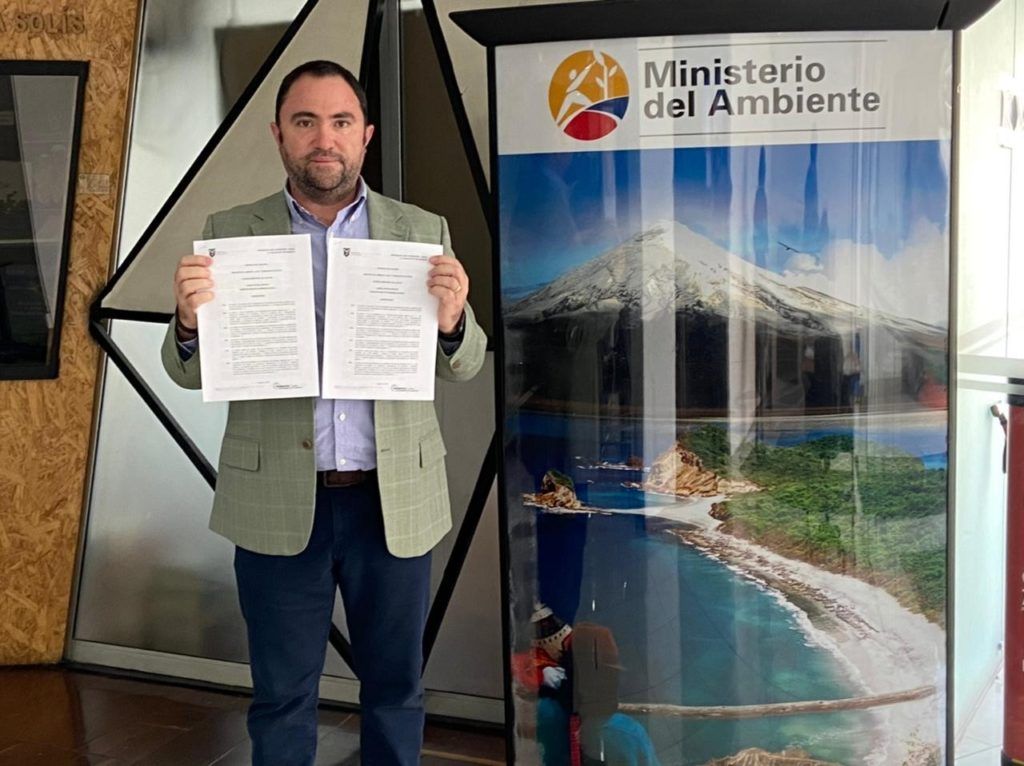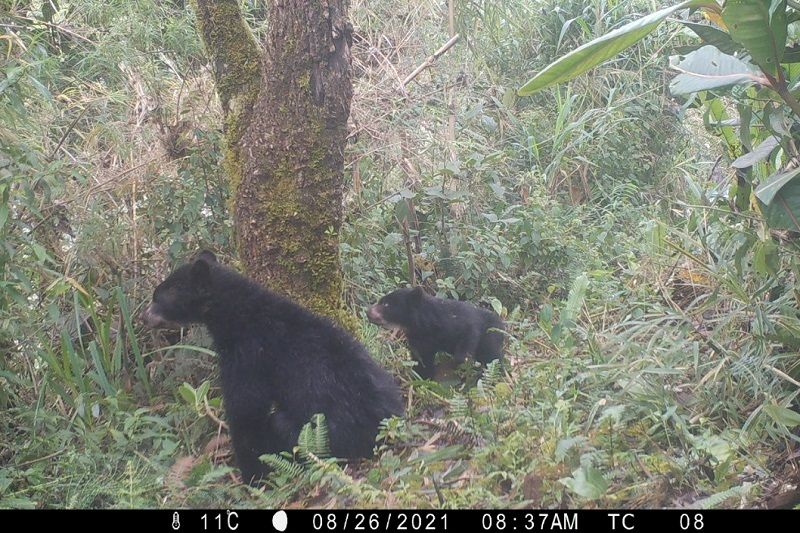Greater protection for Neblina Reserve, Ecuador
Thanks in part to PTES supporters there’s fantastic news from South America. The Ecuadorian Minister of Environment has signed two ‘SNAP’ agreements for Neblina Reserve. SNAP is the ‘National System of Protected Areas’ which gives enhanced protection to important wildlife areas. Neblina Reserve is a global biodiversity hotspot, home to 450 different species of mammals (to put this in perspective, we only have about 60 here in the UK). PTES funding helped identify critical areas of this habitat to receive protected status, giving hope for the future of species such as Andean bears.
Protection from mining
Neblina Reserve had what’s known as Bosque Protector (protected forest) status, which gives a fairly good level of protection by law. However, in the past few years, there have been ever more instances where concessions have been granted below Bosque Protector forest. Los Cedros Reserve, a protected cloud forest northwest of Quito, has been under threat of legal challenges by mining companies, hoping to exploit its resources, for years. The cloud forest has similar Bosque Protector status to Neblina, showing that this alone can be challenged and result in expensive lawsuits.
As in the UK, the government owns the resources below the ground, and can give mining concessions. So, the team at Rainforest Concern has been very keen to push for SNAP status for Neblina Reserve.
This means greater powers to resist mining in the regions in question. Sonja Dilman and Taskkin Meza, along with the rest of their Rainforest Concern team, have been working on the application for SNAP for nearly four years. In addition to the previous legal protections of Bosque Protector, it means that if a mining concession is granted by the Ministry of Mining, the concession must first be signed by the President, and be voted for in the National Assembly (like our House of Commons). So, smaller mining concessions are now very unlikely to be granted, and it reduces the likelihood that new concessions would be granted under existing SNAP areas. The new president of Ecuador has pushed for mining as a key driver of economic benefit, so being awarded SNAP is very important for Neblina.
Upholding the rights of nature
The Rainforest Concern team has been helping support the legal challenge to Los Cedros reserve for years. The team has been working alongside Dr Mika Peck, a senior biology lecturer in biology at the University of Sussex, who is from Ecuador and first investigated the biological importance of Los Cedros in the mid-90s. PTES supported some of Dr Peck’s work in the region on primates that are endemic to the cloud forest. Primates are just some of the species they’ve been trying to protect by fighting to keep mining out of Los Cedros. The case reached the Constitutional Court last autumn (the highest court in Ecuador) and after a year of deliberation, it’s ruled that plans to mine for copper and gold in a protected cloud forest are unconstitutional and violate the rights of nature.
Dr Peck points out that “It is important for the world to reflect on the limits of nature and to seriously question the effectiveness of current conservation policies and actions,” he said. “Policy frameworks that place humans in context as a part of nature, integrated into a system that balances intrinsic rights between legitimate subjects of the law, rather than placing humans as above, or apart from, nature, will be a necessary part of addressing the serious environmental issues that our planet is facing.”
In this landmark ruling, the courts decided that mining would harm the biodiversity of the forest, home to Andean or spectacled bears, endangered frogs, rare orchids and brown-headed spider monkeys, one of the world’s rarest primates and another species being championed by PTES in neighbouring Colombia.
Now mining concessions in the reserve must be cancelled and the rights of nature are enshrined in the country’s constitution, which applies to all land, not just protected areas. Whilst the mining companies and the Ministry of Mining are likely to appeal the ruling, this decision sets a strong and meaningful precedent in this region of the world that’s home to so many of our wild species at a time when our wild areas are under ever-increasing threats.
Thank you for helping us fund this research to protect the cloud forests of Ecuador.
If you’d like to support work like this, please donate or set up a direct debit today



